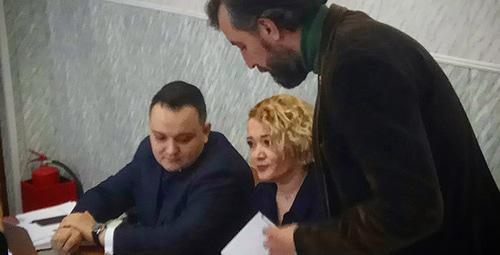
16 March 2019, 08:25
Anastasia Shevchenko's arrest extended for three months
The Leninsky District Court of Rostov-on-Don extended until June 17 the term of house arrest to activist Anastasia Shevchenko, accused of involvement in an undesirable organization. The defence's request to let Anastasia Shevchenko take her children to school and go for walks was dismissed.
The "Caucasian Knot" has reported that Anastasia Shevchenko was detained on January 21, and since January 23, she has been under house arrest. Protest actions in her support have been repeatedly held.
A criminal case was initiated against Anastasia Shevchenko under Article 284.1 of the Russia's Criminal Code (activity of the organization recognized as undesirable in the territory of Russia). This case was the first in Russia, opened under this article. On February 8, the Human Rights Centre (HRC) "Memorial" declared Shevchenko to be a political prisoner.
At the court hearing on March 15, the judge read out the investigator's request to extend the Anastasia Shevchenko's arrest until June 17. The investigator has pointed to the fact that Anastasia Shevchenko is accused of a grave crime against the foundations of the constitutional system and the security of the state.
Advocates Sergey Badamshin and Sergey Kovalevich have reported to the court that Anastasia Shevchenko needs to take her children to school, take walks, and communicate with doctors and notary. Anastasia Shevchenko herself has pointed out that her two minor children remain under the care of an elderly person experiencing health problems.
The court has not only extended the term of house arrest to Anastasia Shevchenko, but also upheld the prohibition to leave home, communicate with anyone other than an advocate and relatives, use means of communication, including the Internet, and receive any correspondence by mail.
This article was originally published on the Russian page of 24/7 Internet agency ‘Caucasian Knot’ on March 15, 2019 at 07:16 pm MSK. To access the full text of the article, click here.
Author: Konstantin Volgin Source: CK correspondent




